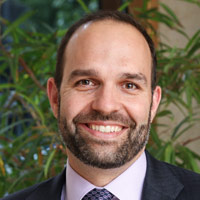WASHINGTON, D.C. — As generative AI advances without guardrails and is used to spread misinformation, broadcasters are combatting online misinformation head-on by dedicating teams to factcheck viral stories and claims.
That was the focal point of a discussion during a U.S. Senate “AI Insight Forum” held Wednesday that saw the President/CEO of the NAB as a participant.
 What are the legal and regulatory implications for Radio and Television that elect to use Generative AI? What’s the culpability for broadcast media should they air a political advertisement in 2024 from a “Super PAC” found to have been created using Generative AI that contains falsehoods or libelous statements? RBR+TVBR‘s forthcoming Winter 2024 magazine offers important insight from a trio of Wiley attorneys. Make sure you get your copy by becoming a Radio + Television Business Report Member today!
What are the legal and regulatory implications for Radio and Television that elect to use Generative AI? What’s the culpability for broadcast media should they air a political advertisement in 2024 from a “Super PAC” found to have been created using Generative AI that contains falsehoods or libelous statements? RBR+TVBR‘s forthcoming Winter 2024 magazine offers important insight from a trio of Wiley attorneys. Make sure you get your copy by becoming a Radio + Television Business Report Member today!
Click here to explore your Membership options.
Speaking on the Senate panel, dubbed “Transparency, Explainability, Intellectual Property and Copyright,” LeGeyt underscored what he believes are concerns about the unauthorized ingestion of broadcasters’ copyrighted content into AI systems without compensation, which potentially hinders reinvestment in local journalism.
LeGeyt also raised concerns about the lack of attribution in AI-generated outputs, which makes it increasingly difficult to identify and distinguish legitimate broadcast content from unvetted and potentially inaccurate content being generated by AI. He underscored how the use of AI to manipulate and distort information is a significant and growing problem that must be addressed in balance with the First Amendment.
“The trusted journalism broadcasters provide is the antidote to the misinformation storm that AI tools are propagating,” LeGeyt said in prepared commentary. “Yet the uncontrolled advancement of generative AI poses significant challenges. Beyond the increased costs for vetting stories and footage, as well as the need to protect the image and likeness of our trusted media personalities in balance with the First Amendment, the ingestion of broadcasters’ copyrighted news content in AI systems without authorization or compensation risks further diminishing reinvestment in local news. Even as some broadcasters have responsibly embraced this emerging technology for its efficiencies in helping to serve local communities, the level of cost and vigilance to maintain our trusted status continues to rise.”
LeGeyt also reiterated comments made across 2023 by the NAB leader that the nation’s broadcasters represent “one of the last bastions of truly local, unbiased journalism. Study after study shows that local broadcasters are the most trusted source of news and information.” And, he noted that broadcast media is available without a paid subscription and proves resilient during times of emergency.
Interestingly, LeGeyt offered a glimpse into just how much Hubbard Radio spends to make its all-News WTOP Radio one of Washington’s most-listened-to audio choices. According to LeGeyt, the station long run by Joel Oxley “spends more than $12 million a year to run its newsrooms, with more than a third of that expense going to running its digital operation.” That said, WTOP Radio is the No. 1 revenue-generating radio station in the nation, according to BIA Advisory Services data.
Concluding his prepared comments, LeGeyt stated, “Our nation is at a crucial crossroads where the trust, integrity and authenticity of journalism is at stake. America’s broadcasters are extremely proud of the role we play in serving communities and combatting online misinformation across the United States.”
Senate Majority Leader Chuck Schumer (D-N.Y.) and three other senators convened the forum, designed to provide legislators with insight that could shape potential bills.




